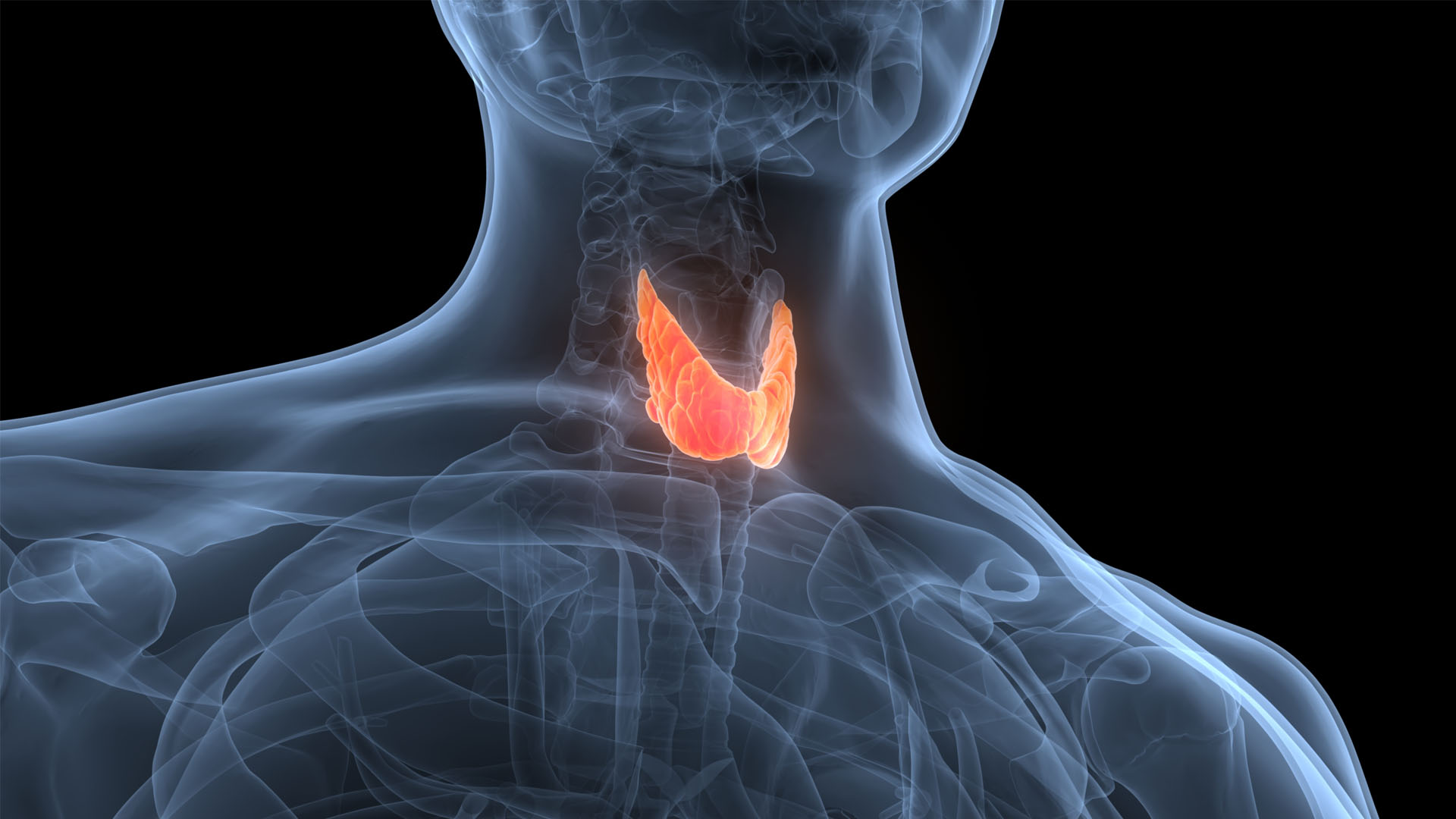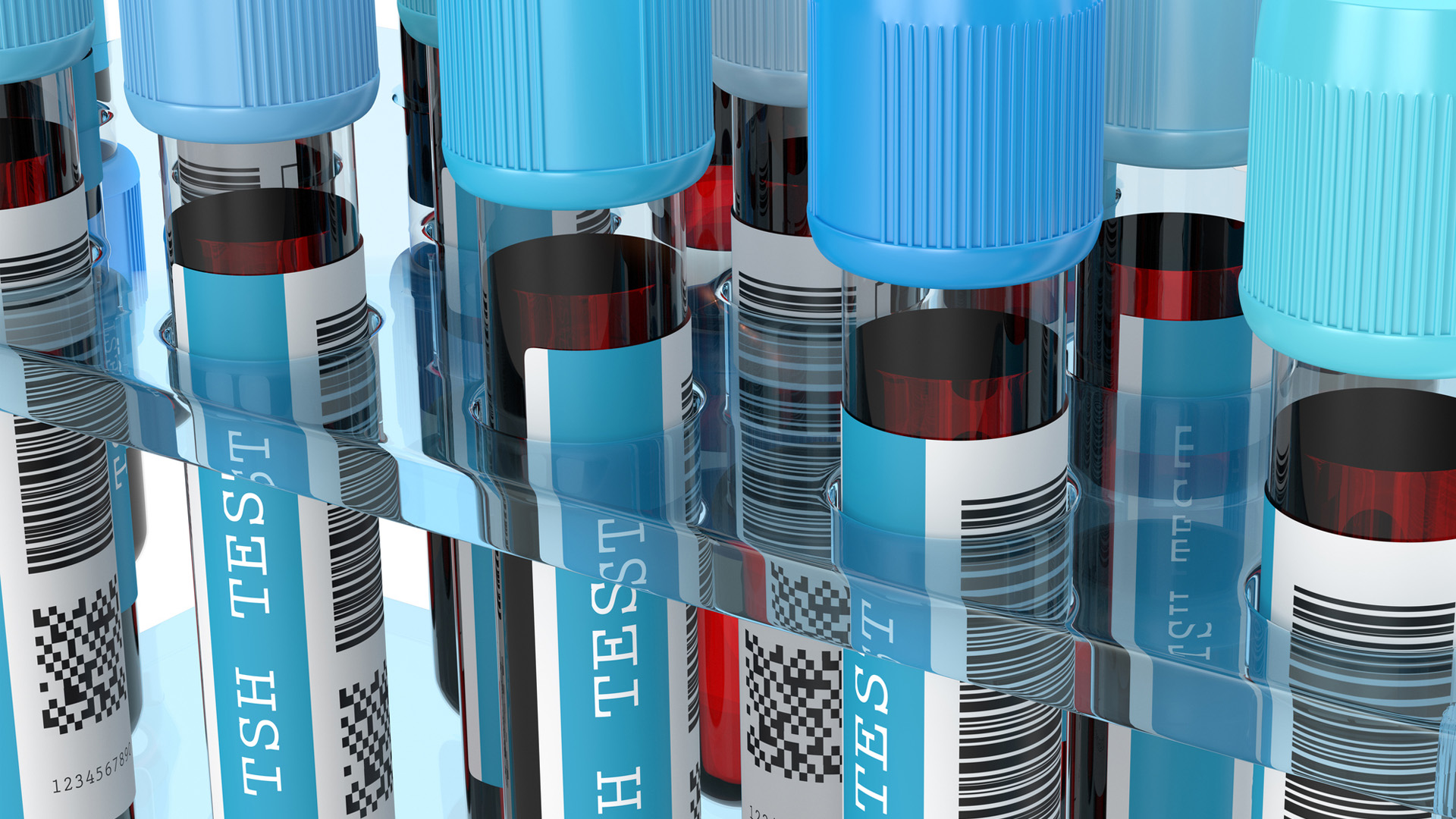Hypothyroidism (underactive thyroid): Causes, symptoms & treatment
Hypothyroidism is a condition in which the body's thyroid gland doesn't produce enough hormones, leading to a range of symptoms.

Hypothyroidism is a condition in which the thyroid gland in the throat doesn’t produce enough hormones.
This chronic disease is surprisingly common, especially among older people, women and those with autoimmune conditions. Those with a family history of thyroid problems also have an elevated risk of developing hypothyroidism. However, many of the signs of this condition, such as fatigue and weight gain, are vague and overlap with those of other ailments. Because of its nonspecific constellation of symptoms, the condition cannot be diagnosed without blood tests prescribed by a doctor.

Dr. Rebecca Breslow is a physician, researcher and writer. A graduate of Yale University, she did her medical training at Harvard Medical School, Brigham and Women's Hospital, and Boston Children's Hospital. She was a practicing physician in academic medicine for 17 years, during which time she authored numerous publications for academic and lay audiences. Currently, she focuses on freelance medical writing and editing to help make medical, health and wellness information accessible to a broad audience.
What is hypothyroidism (underactive thyroid)?
Hypothyroidism is a common, chronic condition often referred to as underactive thyroid. According to the National Health and Nutrition Examination Survey, a program of studies designed to assess the health and nutritional status of adults and children in the United States, nearly five out of 100 Americans ages 12 years and older suffer from it, although most cases are mild or present with few symptoms.
According to the National Institute of Diabetes and Digestive and Kidney Diseases (NIDDK), hypothyroidism occurs when your thyroid gland doesn’t produce enough hormones. Low levels of thyroid hormones can lead to a range of symptoms, including weight gain, decreased energy levels, low mood and muscle aches.
The thyroid is a small, butterfly-shaped organ in your throat. It releases the hormones calcitonin, T4 (thyroxine, or tetraiodothyronine) and T3 (triiodothyronine) into the bloodstream. These hormones play important roles in regulating the functioning of your brain, nerves, skin, hair, eyes, heart and intestines.

"The thyroid is controlled by a hormone called TSH — thyroid stimulating hormone — which is produced by the pituitary gland," a pea-size gland at the base of the brain, Dr. Amos Ogynkoya, a general practitioner at Tynemouth Medical Practice in the U.K., told Live Science. "This hormone stimulates the thyroid to produce T3 and T4 and suitable levels. There is a close relationship between TSH, T3 and T4 and studies often look at the interrelationship and correlation between dysfunction in these three together."
Thyroid hormones control the rate at which cells and organs use oxygen and energy from food. So when thyroid hormone levels are low, the body’s metabolism slows down.
"Cholesterol and triglycerides levels will record elevated values,' Iustin-Nicolae Bilibou, specialized clinical dietitian at Cygnet Health Care, told Live Science. He also added that the body can make less vitamin A and protein too.
Some individuals are also more likely to develop hypothyroidism than others, including women and people over the age 60.
People are more predisposed to have an underactive thyroid if they:
- have a history of thyroid problems
- had surgery or radioactive iodine to treat a thyroid problem
- received radiation treatment to the thyroid, neck, or chest
- have a family history of thyroid disease
- were pregnant in the past six months
- have Turner syndrome (a genetic developmental disorder affecting females)

Certain health conditions may increase your risk of developing hypothyroidism, too. These include:
- Celiac disease
- Sjögren’s syndrome (an autoimmune condition causing dry eyes and mouth)
- Pernicious anemia (low red blood cell count due to vitamin B12 deficiency)
- Type 1 or type 2 diabetes
- Rheumatoid arthritis (an autoimmune condition causing joint problems)
- Lupus (a chronic autoimmune inflammatory condition)
"Hypothyroidism can be evaluated with a simple thyroid function blood test," Ogunkoya told Live Science.
What are the symptoms of hypothyroidism?
Hypothyroidism has many symptoms that can vary from person to person, according to the NIDDK. Some common symptoms of underactive thyroid include:
- Fatigue
- Weight gain
- Trouble tolerating cold
- Joint and muscle pain
- Dry skin
- Dry, thinning hair
- Heavy or irregular menstrual periods
- Fertility problems
- Slowed heart rate
- Depression
Read more: Seven possible signs of an underactive thyroid
What causes hypothyroidism?
Hypothyroidism has several causes.
One of the most common causes of underactive thyroid is Hashimoto's disease. Also known as Hashimoto's thyroiditis or chronic lymphocytic thyroiditis, it's a condition in which the immune system attacks the thyroid gland. Over time, the thyroid gets progressively more damaged and loses its ability to produce enough of the hormones that spur metabolism.
Another common cause is thyroiditis, an inflammation of the thyroid. There are three types of thyroiditis: subacute thyroiditis (presenting with a painfully inflamed and enlarged thyroid), postpartum thyroiditis (occuring after pregnancy), and silent thyroiditis (presenting with no symptoms). This condition is likely to be autoimmune. It causes stored thyroid hormones to leak out of the gland, leading to thyrotoxicosis – excessive levels of hormones in the bloodstream. Over time, this can cause the thyroid to be less responsive to signals from the pituitary gland.
Some people have congenital hypothyroidism, meaning they are born with the condition. This can lead to intellectual disability and stunted growth, so most newborns are screened for symptoms.

Underactive thyroid may also be a result of surgery. Part or all of the thyroid may be removed as a treatment for hyperthyroidism (overactive thyroid), a large goiter or thyroid cancers.
Hypothyroidism can develop in response to radiation treatment. Radioactive iodine, a common treatment for hyperthyroidism or head and neck cancers, gradually destroys thyroid cells and makes them less functional.
What’s more, some medicines can interfere with thyroid hormone production. These include certain medications for heart problems, bipolar disorder or cancers.
Some lifestyle factors may impact the odds of developing hypothyroidism, Ogunkoya said.
A 2021 review in the International Journal of Molecular Sciences looked at studies analyzing the impact of environmental factors on TSH and thyroid hormone levels in healthy adults. It found that a lot of the literature was inconsistent, making it difficult to draw a general conclusion about how a particular environmental factor influences TSH and thyroid hormone levels. However, lifestyle factors that showed the highest consistency in results between studies were history of smoking, overweight or obese BMI and iodine (taken from the diet).
Hypothyroidism vs hyperthyroidism
According to the NIDDK, hyperthyroidism is the opposite of hypothyroidism. It’s when the thyroid gland produces more thyroid hormones than the body needs, and this chronic condition is often referred to as overactive thyroid.
Excessive levels of thyroid hormones can lead to a range of symptoms, including weight loss, irregular heartbeat, irritability, muscle weakness and trouble tolerating heat. They may also present with a goiter, which is an enlargement in the neck. Overactive thyroid is less common than underactive thyroid. It is estimated that this condition affects about one out of 100 Americans ages 12 and older.
How can you treat hypothyroidism?
According to the NIDDK, treatment for hypothyroidism involves medication. However, it’s always recommended to visit your doctor first, so that they can carry out any necessary tests and design an appropriate intervention for you.
Hypothyroidism is often treated by replacing the hormones that the thyroid gland cannot produce anymore.
Daily hormone replacement tablets, called levothyroxine, are usually prescribed to raise thyroxine in the body. However, the condition is likely to be managed over a lifetime, so annual TSH blood tests are usually required to measure hormone levels and monitor dosage.
Continuous monitoring is crucial as taking too much thyroid hormone medicine can cause adverse side effects, including atrial fibrillation or osteoporosis. It also needs to be taken according to specific guidelines.
Hypothyroidism cannot be treated with nutrition and exercise, but because weight gain is a common symptom of the condition, people with hypothyroidism are often advised to increase their physical activity levels.
This article is for informational purposes only and is not meant to offer medical advice.
Sign up for the Live Science daily newsletter now
Get the world’s most fascinating discoveries delivered straight to your inbox.

Anna Gora is a health writer at Live Science, having previously worked across Coach, Fit&Well, T3, TechRadar and Tom's Guide. She is a certified personal trainer, nutritionist and health coach with nearly 10 years of professional experience. Anna holds a Bachelor's degree in Nutrition from the Warsaw University of Life Sciences, a Master’s degree in Nutrition, Physical Activity & Public Health from the University of Bristol, as well as various health coaching certificates. She is passionate about empowering people to live a healthy lifestyle and promoting the benefits of a plant-based diet.










